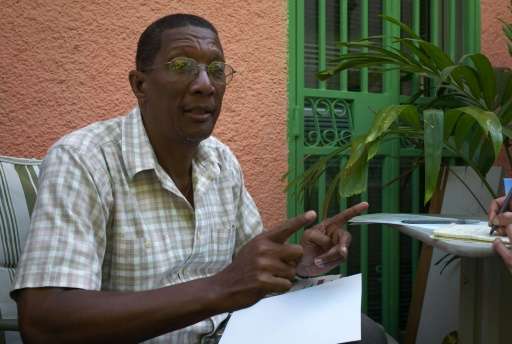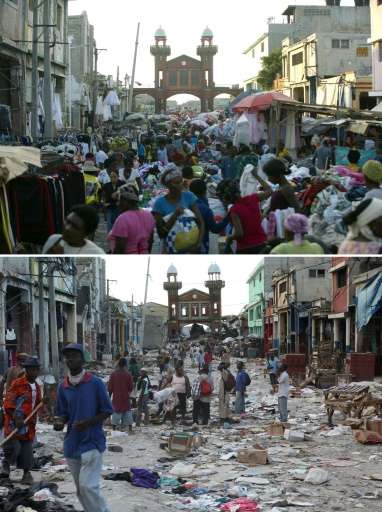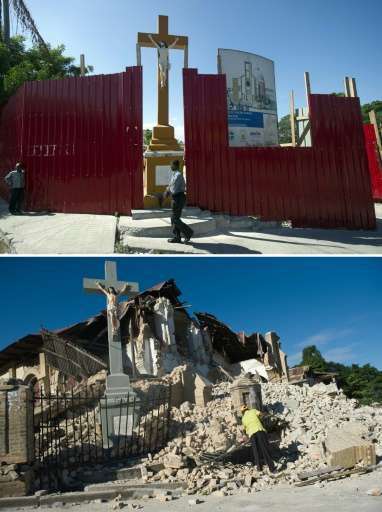Six years after devastating Haiti quake, risks still high

Six years after Haiti was devastated by a magnitude-seven earthquake, the government seismologist who predicted it warns little has been done to protect people in the likely event of a repeat disaster.
Claude Prepetit, the chief seismologist at the Bureau of Mines, says the risk of a major earthquake remains as high today as it was on January 12, 2010, when more than 200,000 people died in a catastrophic event that leveled much of the Haitian capital.
While the poorest country in the Americas has since been studied and carefully mapped by seismologists, authorities have done little to translate what's been learned into practical measures to limit the effects of another quake, he said.
"This is where the problem lies," Prepetit said in an interview with AFP. "There has been a construction code in Haiti since 2012, but who is in charge of enforcing it?"
Many of the deaths in the 2010 quake were attributed to poor construction that failed to withstand the force of the quake.
"It's necessary to move to an operational phase because the point of our studies is to reduce the population's vulnerability. It is to avoid that there be 300,000 deaths in the next earthquake," he said.
"Yet in the past six years, very few actions and decisions have been taken," he said.

Prepetit, who had calculated that Haiti faced a threat of a 7.2-magnitude quake before the big one hit, said much more is known about the earthquake risks in Haiti today than in 2010.
Seismologists have conducted detailed studies of the capital Port-au-Prince and the country's other regions.
They have produced zone-by-zone maps of the densely packed capital to show where it is safe to rebuild.
They have also established 130 sites around the country that use GPS satellites to closely monitor movements of the ground.

Action lags
But, he said, "The operational translation of this scientific information has not been accomplished yet."
"Local communities should appropriate this data because it is the city halls that issue construction permits. But to be blunt, they have not acted, they have not educated the population."
Prepetit suggested it is only a matter of time before the Caribbean country experiences another major quake.
He said the studies conducted since 2010 have revealed that the quake originated not with a known major fault in the south as initially believed, but with a previously unknown fault.
"So the energy on the southern fault line is still intact and has increased over the past six years. It could be released at any moment," he warned.
He said Haiti could experience 7.8 magnitude quakes in another high-risk area in the country's densely populated north, or a 7.2-magnitude event on faults in its southern peninsula.
"It is quite frustrating to launch alerts and not see reactions because our aim is not to make beautiful maps but, as citizens, to see that measures are taken to limit the damage."
© 2016 AFP

















